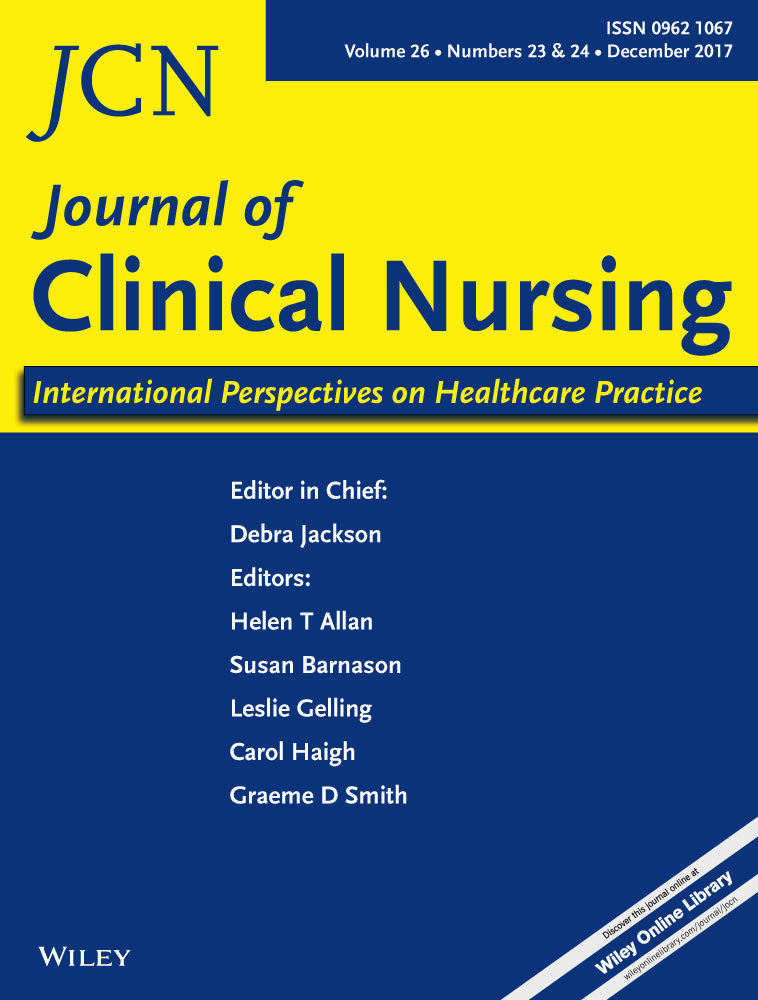Supporting clinical leadership through action: The nurse consultant role
Funding information
Funded by Bournemouth University and Yeovil District Hospital NHS Foundation Trust to release the time of the authors to engage in the Action Learning Set, in collaboration.
Abstract
Aims and objectives
To evaluate the effectiveness of an action learning set to enhance clinical leadership and extend their scope and confidence more strategically.
Background
As the most senior clinical role in most healthcare systems, the consultant nurse role is a solitary one. They are required to develop personal resilience, commitment and a belief in their ability to lead, with new consultants needing a strong support network to succeed.
Design
Following a 2-year action learning set, four nurse consultants, one therapy consultant, and a university educationalist engaged in a cooperative inquiry approach using four cycles of discussion, reflection, analysis and action over an 18-month period from March 2015–July 2016, to learn how to change and enhance their working practices. Data were analysed thematically.
Results
Four themes emerged where the action learning set (i) offered structure and support, (ii) enabled a wider influence and (iii) empowered them to lead. The cooperative inquiry helped them realise how much they had gained from their collective learning and they felt empowered to lead.
Conclusion
Their motivation to “make a difference” remains palpable. The outcomes of the cooperative inquiry included an enhanced understanding of the importance of openness and trust and a willingness to share and learn from each other in a respectful and confidential environment with a receptiveness to change. Self-leadership has clearly been accepted and embraced, and their collaboration has improved communication across the organisation, enhanced their strategic leadership capability and given confidence to disseminate externally.
Relevance to clinical practice
The action learning set offered structure to support these clinical leaders to keep them focused across the breadth of their role. Additionally, peer review with external facilitation has enabled these clinical leaders to gain a wider influence and empowered them to lead.




